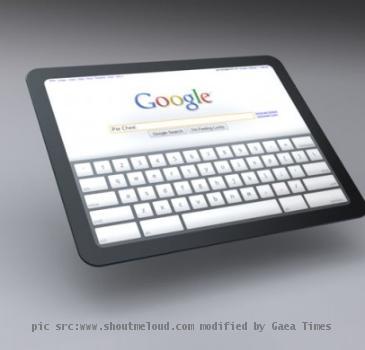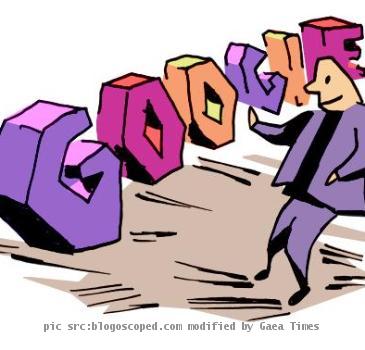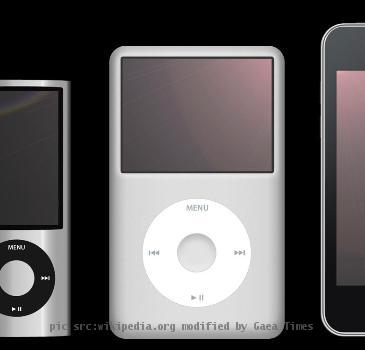Iran dismisses sanctions, but tried to avoid them
UNITED NATIONS — The U.S. and its allies scored a long-sought victory Wednesday by pushing through new U.N. sanctions over Iran's nuclear program, punishments Tehran dismissed as "annoying flies, like a used tissue."
The sanctions target Iran's powerful Revolutionary Guard, ballistic missiles and nuclear-related investments. Oil exports, the lifeblood of Iran's economy, are not affected because targeting them would have cost the U.S. essential support from Russia and China.
President Barack Obama said the sanctions are the toughest Iran has ever faced. They required several months of difficult negotiations by the five veto-wielding permanent U.N. Security Council members — the U.S., Russia, China, Britain and France — and non-member Germany. This is the fourth round of sanctions aimed at getting Iran into serious discussions on its nuclear ambitions.
"Actions do have consequences, and today the Iranian government will face some of those consequences," Obama said. He left the door open to diplomacy but said Iran "will find itself more isolated, less prosperous and less secure" unless it meets its obligations under the Nuclear Nonproliferation Treaty.
Iranian President Mahmoud Ahmadinejad, on an official visit in Tajikistan, dismissed the new resolution.
"From right and from left, they adopt sanctions, but for us they are annoying flies, like a used tissue," he said.
Tehran insists its program is peaceful and aimed at producing nuclear energy. The U.S. and its allies say Iran is trying to produce nuclear weapons; they want Iran to suspend uranium enrichment and start negotiations aimed at ensuring that it uses nuclear technology only for peaceful purposes.
The new resolution bans Iran from pursuing "any activity related to ballistic missiles capable of delivering nuclear weapons," bars Iranian investment in activities such as uranium mining and prohibits Iran from buying several categories of heavy weapons including attack helicopters and missiles. Iran, however, already has most of what it would need to make a weapon.
Iran's top nuclear negotiator, Saeed Jalili, warned that "choosing the option of confrontation will bring Iran's resolute response," according to Iran's official news agency. He did not elaborate.
Iran's U.N. Ambassador Mohammad Khazaee accused the United States, Britain and their allies of abusing the Security Council to attack Iran.
"No amount of pressure and mischief will be able to break our nation's determination to pursue and defend its legal and inalienable rights," Khazaee said. "Iran is one of the most powerful and stable countries in the region and never bowed — and will never bow — to the hostile actions and pressures by these few powers and will continue to defend its rights."
U.S. Ambassador Susan Rice dismissed Khazaee's statement as "ridiculous … reprehensible, offensive, and inaccurate" and declared that "these sanctions are as tough as they are smart and precise."
The resolution was approved by a vote of 12-2 with Lebanon abstaining and Brazil and Turkey voting "no." Turkey and Brazil, both non-permanent council members, brokered a fuel-swap agreement with Iran that they offered as an alternative solution to concerns Tehran may be enriching uranium for nuclear weapons.
Lebanon's U.N. Ambassador Nawaf Salam said he abstained because the government failed to "reach a final position." A U.N. diplomat, speaking on condition of anonymity because the government debate was private, said the Cabinet was split, 14-14, on whether to vote no or abstain.
The sanctions put Iran in the unusual position of bashing key allies China and Russia. Both countries voted for the resolution and either could have vetoed it. Ahmadinejad warned Russian leaders last month "to correct themselves, and not let the Iranian nation consider them among its enemies."
In Moscow, the Itar-Tass news agency reported that Ahmadinejad will not take part in the summit of the Shanghai Cooperation Organization in Uzbekistan beginning Thursday. The group was created in 2001 to address religious extremism and border security in Central Asia, and has grown into a bloc aimed at defying U.S. interests in the region.
Ahmadinejad is scheduled to tour the World Expo in Shanghai this week, but is not expected to hold talks with senior Chinese leaders.
Iran holds more leverage over China, which needs Iran's oil and gas to feed its growing energy appetite, than it does over Russia, which has long provided important technology to Iran including building the country's first nuclear reactor. The facility is expected to begin electricity production this summer.
The Security Council imposed limited sanctions in December 2006 and has been ratcheting them up in hopes of pressuring Iran to suspend enrichment and start negotiations on its nuclear program. Iran has repeatedly defied the demand and has stepped up its activities, enriching uranium to 20 percent and announcing plans to build new nuclear facilities.
The new resolution imposes sanctions on 40 Iranian companies and organizations — 15 linked to Iran's Revolutionary Guard, 22 involved in nuclear or ballistic missile activities and three linked to the Islamic Republic of Iran Shipping Lines. That more than doubles the 35 entities that had been subject to an asset freeze.
The sanctions add one individual to the previous list of 40 Iranians subject to an asset freeze — Javad Rahiqi, who heads the Atomic Energy Organization of Iran's Esfahan Nuclear Technology Center. All 41 individuals will also now be subject to a travel ban.
Rahiqi declined to comment when contacted by The Associated Press.
The resolution also calls on all countries to cooperate in cargo inspections — which must receive the consent of the ship's flag state — if there are "reasonable grounds" to believe the cargo could contribute to the Iranian nuclear program.
On the financial side, it calls on — but does not require — countries to block financial transactions, including insurance and reinsurance, and to ban the licensing of Iranian banks if they have information that provides "reasonable grounds" to believe these activities could contribute to Iranian nuclear activities.
U.S. Defense Secretary Robert Gates said Tuesday that new sanctions would pave the way for tougher additional measures by the U.S. Plantronics Voyager 520 Headset Retail Packaging. and its allies. France's U.N. Ambassador Gerard Araud said after Wednesday's vote that European Union foreign ministers will be meeting on Monday and France would like "a tough translation of the resolution," but it's up to the 27 countries to decide on additional sanctions.
Israel's ambassador to the United States, Michael Oren, said the resolution "can serve as a viable platform" for nations to launch sanctions such as restrictions on Iran's ability to import gasoline. "They have a lot of oil, but not a lot of refined oil or the ability to export oil abroad," he said.
The U.N. resolution was approved despite an Iranian diplomatic offensive launched in April. Jalili visited Beijing that month in the wake of U.S. reports saying China had dropped its opposition to possible new U.N. measures against Iran.
Iran also approached several non-permanent Security Council members, including Bosnia, Brazil, Turkey and Uganda, in hopes of averting new sanctions. Inviting diplomats from all 15 members of the Security Council to a two-hour dinner in New York in May was seen as Iran's high-profile attempt to head off additional penalties.
China's U.N. Ambassador Li Baodong said after the vote that the sanctions were aimed at curbing nonproliferation and would not affect "the normal life of the Iranian people" nor deter normal trade activity, a view echoed by Russia's U.N. envoy Vitaly Churkin.
The five permanent council members and Germany, in a statement after the vote, reaffirmed their "determination and commitment to seek an early negotiated solution to the Iranian nuclear issue … which would restore international confidence in the peaceful nature of Iran's nuclear program." It welcomed and commended "all diplomatic efforts in this regard, especially those recently made by Brazil and Turkey."
Brazilian President Luiz Inacio Lula da Silva said the new sanctions were "a mistake" implemented "just for spite." According to the state-run Agencia Brasil news agency, Silva said the resolution's supporters "threw out an historic opportunity to peacefully negotiate the Iranian nuclear program" — the fuel-swap agreement his country and Turkey had championed.
Under the proposal, Iran would swap some of its enriched uranium for fuel for a research reactor in Tehran. The U.S., Russia and France have said that — unlike the original plan drawn up eight months ago — the proposal would leave Iran with enough material to make a nuclear weapon.
The three countries sent a letter to the International Atomic Energy Agency seeking clarifications from Tehran, and several council ambassadors said they would still like to see the swap go ahead. Lebanon's Salam called it "a gateway for confidence building measures."
"We believe that the sanctions resolution is a painful failure of diplomatic efforts," Salam said. "We refuse to give up. We call on all states … to reinitiate and intensify diplomatic efforts."
The new sanctions should bring little direct political fallout for Ahmadinejad. The country has been deeply polarized since last June's disputed presidential election — which the opposition claims was rigged by vote fraud — and Ahmadinejad's backers are likely to use the sanctions as a rallying cry.
In Venezuela, President Hugo Chavez condemned the measures against Iran, his close ally.
"Why won't they sanction Israel? You realize the cynicism of the Yankee empire and its allies in the world," Chavez said in a televised speech Wednesday night. "Israel massacres, kills, doesn't comply with United Nations resolutions … and the United Nations acts as if nothing had happened."
Associated Press Writers George Jahn in Vienna, Matthew Lee in Quito, Ecuador, Peter James Spielmann at the United Nations, Beth Fouhy in New York City, Mark Lavie in Jerusalem and Olga Tutubalina in Dushanbe, Tajikistan contributed to this report.











